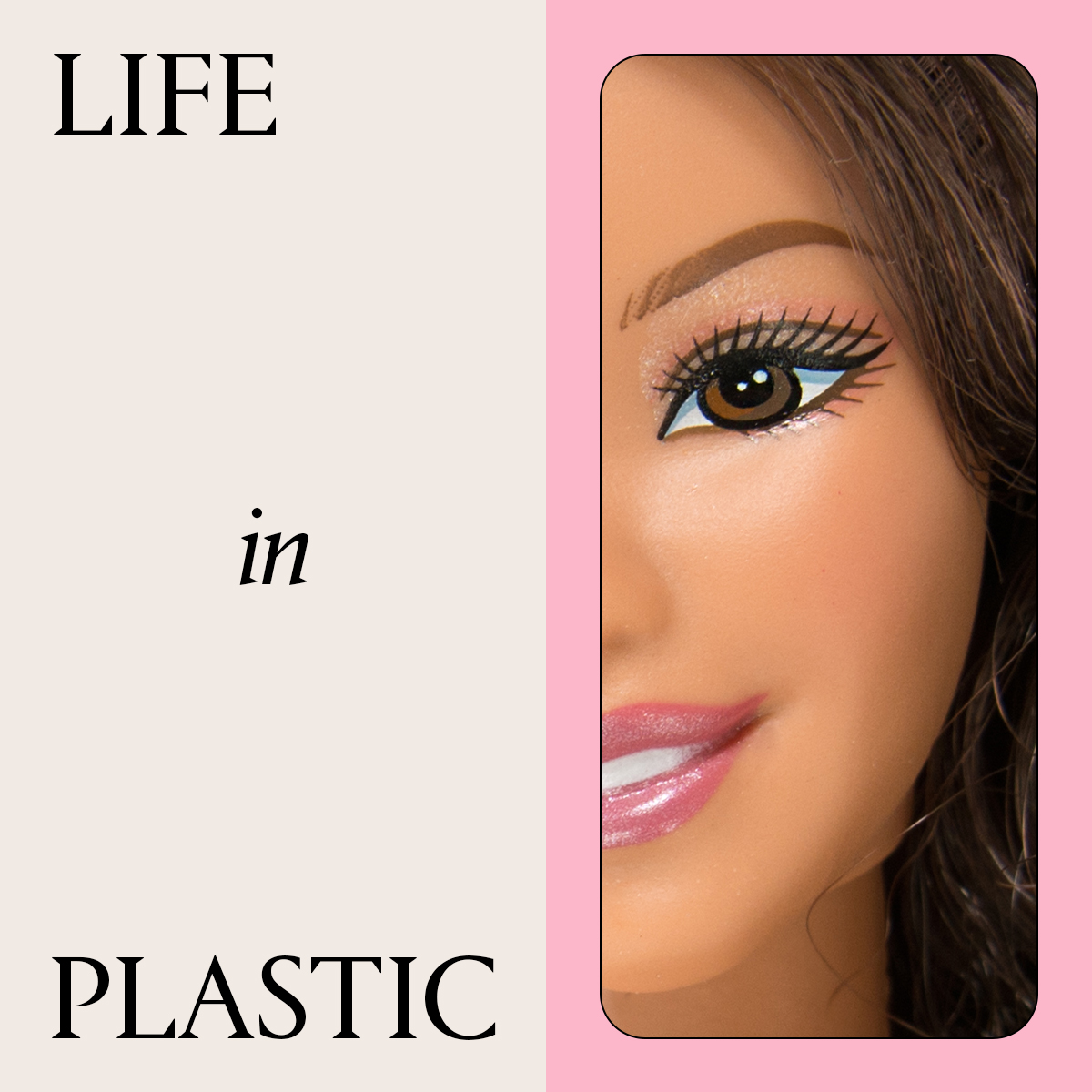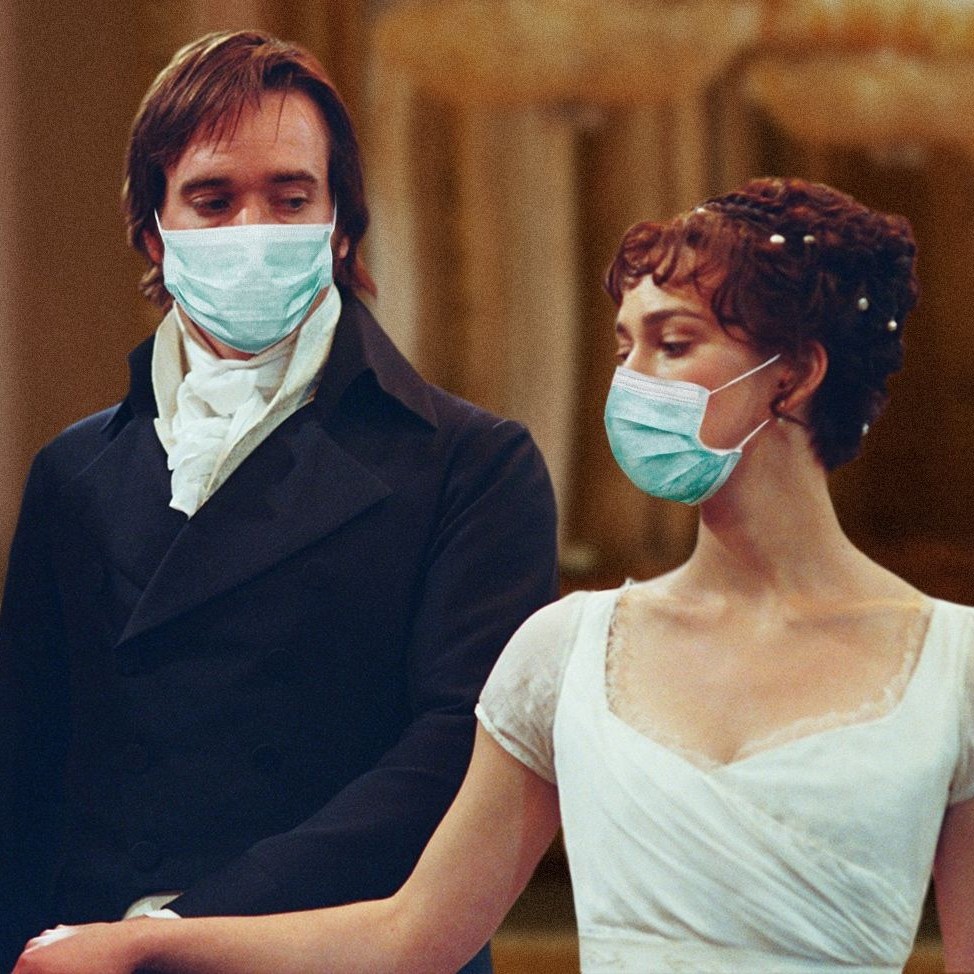While You Were Sleeping
Blockbuster sleep drug Ambien has been hailed as a lifesaver, by women especially, who depend on it to conquer insomnia and jet lag. But its bizarre, sometimes tragic side effects raise alarming questions about the go-to-bedtime fix.

Lindsey Schweigert was utterly exhausted when she returned home to St. Louis, Missouri, in March 2011 after a weeklong business trip to Washington, D.C. It was her fifth such trip in three months, an unavoidable part of her job with a defense contractor that had her crisscrossing the country selling security software to Pentagon officials. Schweigert, 31, looked forward to turning in early. She made a dinner of pork chops and salad, put on her pajamas, popped an Ambien, and crawled into bed. It was only 6 p.m. or so, but sleep came fast.
After that, her memories are a blur. The next thing she remembers is sitting in the back of a police car, still wearing her pajamas, her hands handcuffed behind her. She had no idea what had happened or how she got there. Though she was sure she hadn't had anything to drink, the officer told her she was under arrest for driving while intoxicated. When they got to the station, Schweigert was booked and thrown into a coed holding cell with a dozen other inmates, mostly male. She quickly claimed a corner, hunched down low, and began to sob. When a fight broke out between two meth addicts, cops intervened with pepper spray. Inmates began vomiting at her feet. Concerned for their safety, officers moved Schweigert and three other female inmates to a separate cell, then released her, finally, at 4:30 a.m.
The first call she made was to her brother, who raced over to pick her up. On the teary ride home, she tried to make sense of the last 10 hours. What on earth just happened to me? The question rang in her head as she replayed the night's events. That's when it hit her: Ambien. Though she'd taken it for years for insomnia, she'd refilled her last prescription on the road and was given the generic formulation, Zolpidem. Maybe the switch explained the surreal turn of events that had landed her in jail.
In the weeks that followed, Schweigert pieced together an account of what had happened to her that night using the police report and witness statements: Sometime after 8 p.m., she got out of bed, rummaged around her house, and drew a bath. With the water still running, she grabbed the keys to her Mini Cooper and scooped up Tyson, her dog, and headed to Steak 'n Shake, a nearby diner. Her roommate came home shortly afterward and was so alarmed by the condition of the house, he thought she had been kidnapped and called the police. Schweigert, meanwhile, never made it to Steak 'n Shake. About a half-mile away, she crashed into a car. Cops on the scene said she was swaying and glassy-eyed. Asked to walk a straight line, she fell three times. Schweigert was charged with driving under the influence and running a stoplight. Though she had no prior DWIs, her license was immediately suspended and her career — and security clearance — was in serious jeopardy.
When Ambien was approved by the Food & Drug Administration in 1992, doctors hailed it as a dramatic improvement over previous sleep aids like Halcion, which had been linked to suicide and psychotic episodes and had been banned in the U.K., Brazil, Argentina, Norway, and Denmark. A big selling point for Ambien, part of a new class of drugs called sedative hypnotics, was that it was less addictive than Halcion and also less likely to leave users feeling groggy or hungover the next day. Approved for short-term treatment of insomnia, Ambien quickly became a go-to drug for travelers — finally, a pill to beat jet lag. Within four years, Ambien became the best-selling sleep aid in the country, at its peak generating $2 billion in sales for French drugmaker Sanofi. In 2007, Zolpidem, a generic version of Ambien, was rolled out and is today one of the country's most-prescribed drugs, with 39 million scrips filled last year alone. Doctors dole it out more frequently than even Percocet and prescription ibuprofen. It's especially popular among women, who suffer from insomnia twice as often as men; older women swear by it to combat menopause-related sleeplessness. All told, women account for 64 percent of Ambien prescriptions.
All medications come with prescribing information detailing a drug's dosage instructions, drug interactions, and adverse reactions. When Ambien was first introduced to the market, its fine print included warnings that sedative hypnotics can cause abnormal thinking, strange behavior, and hallucinations. Sleepwalking was referenced as a rare occurrence, afflicting less than 1 in 1,000 patients. The prescribing information made no mention of hundreds of unsettling reports from users who took Ambien before bed only to later learn that while in a sort of sleep trance, they'd raided their hotel minibars, ordered thousands of dollars' worth of merchandise online, made phone calls, or answered e-mail; that they awoke the next day with no recollection of their conduct, just the evidence in the form of wrappers strewn around their beds, invoices from strange websites, voice mails and texts from perplexed friends.
It wasn't until 2006, when Patrick Kennedy blamed Ambien for his 2 a.m. crash into a Capitol Hill barrier, that the drug and its oddball side effects drew national attention. The disoriented Rhode Island congressman, son of Ted Kennedy, told officers on the scene that he was late for a vote. He ultimately pleaded guilty to driving under the influence of prescription drugs and served a year probation. Around the same time, Sanofi was slammed with a class-action lawsuit by Ambien users who complained of sleep-eating while under the drug's influence. Plaintiffs' lawyer Susan Chana Lask cited examples of clients gobbling buttered cigarettes and raw eggs (including the shells) while in an Ambien-induced haze. "Ambien zombies," she called them.
Stay In The Know
Get exclusive access to fashion and beauty trends, hot-off-the-press celebrity news, and more.
In the wake of the class action and more than a dozen officially reported incidents of sleep-driving, the FDA agreed to take action. In March 2007, it issued an order mandating stronger warnings for all sedative hypnotics, including Ambien. In addition to revising the labeling, the agency also required the drugmakers to alert doctors about the potential dangers of sleep-driving. The FDA also asked drugmakers to conduct clinical studies to better understand why and how frequently sleep-driving occurs.
But those studies have never been done. According to an excerpt of a sealed document quoted in a recent civil case, Sanofi told the FDA in 2007 that "methodological constraints" precluded them from undertaking the effort. (Sanofi would not comment on the matter.) That's no surprise to Texas attorney Michael Mosher, who in 1992 won a landmark $1.8 million verdict against Halcion's maker, Upjohn Co., claiming that the company suppressed evidence of the drug's dangerous side effects. His suit spawned an FDA investigation that found Upjohn routinely omitted and misrepresented results from clinical studies. "There's little incentive for drugmakers to spend large sums conducting such studies — particularly when the results could be used against them in civil cases," says Mosher.
The result is a medical Catch-22: Although the FDA requires a warning that Ambien may cause sleep-driving, it hasn't compelled any studies or clinical trials to actually verify the link. And since the potential for sleep-driving is already disclosed in the fine print, drugmakers can't be held legally accountable when it occurs.
Instead, researchers have been forced to rely on hundreds of after-the-fact reports from patients and defendants, in addition to small studies conducted intermittently around the world. Two years ago, psychiatrists at Japan's Shimane University found that women are more likely than men to experience adverse reactions from Ambien. (Women retain higher concentrations of Ambien in their blood than men do, likely because they weigh less.) Based on those results, the Japanese doctors recommended that women be given smaller doses than men. Another report published in CNS Drugs, a journal devoted to the treatment of psychiatric and neurological disorders, revealed that common over-the-counter drugs like Benadryl may heighten the effect of Ambien, triggering sleep-related side effects.
Meanwhile, newspapers around the country are reporting Ambien-induced sleep-driving incidents on a near-daily basis. In 2008, while promoting The Bucket List, Jack Nicholson told a photographer, "I took Ambien once. I fell asleep and almost drove off a cliff 50 yards from my house." Three years ago, Steve Martin regaled an audience at the Late Show With David Letterman about how he awoke one morning to learn he'd won $1,000 playing online poker in an Ambien-induced stupor. "I played better out of my mind than I ever had," he joked. "But I never took an Ambien again."

Above: Lindsey Schweigert's mug shot.
Following her arrest, Lindsey Schweigert faced a conviction that would most certainly compromise her security clearance and likely cost her her job. Forever after, she'd be forced to disclose her arrest record on job applications and a slew of other documents. Not to mention the hassle of losing her license, increased car insurance premiums, and the humiliating conversations with friends and family (to say nothing of prospective boyfriends) about her arrest. Schweigert had good reason to worry that a conviction might damage her life.
Her lawyer, Jacquelyn Hunt, invoked a novel legal strategy, one that defendants in Ambien-induced predicaments have begun asserting in DWI cases across the country. Citing the FDA-mandated label, Hunt argued that what happened to Schweigert was a known side effect of Ambien — and not a crime. Cops should have taken her to the hospital, not jail, Hunt reasoned. Defendants asserting this so-called Ambien defense have had mixed results. In a seminal case, the attorney for 51-year-old Marie Connelly of Hillsborough, New Jersey, used it to overturn his client's 2006 DWI conviction, noting the FDA label change six months after her arrest. The appellate court ruled it would be an "injustice to hold her responsible for the undisclosed side effects of a popular and readily available medication that she was lawfully prescribed and properly administered."
Still, many judges and prosecutors find the notion of sleep-driving inherently implausible despite FDA recognition that it can — and does — happen. The legal dockets are filled with cases like the arrest of Kristine Story, 32, of Fairbanks, Alaska, who was busted in April 2008 after taking an Ambien and "waking up" in a patrol car. After callers reported her as a drunk driver, cops following her home were surprised to find she'd left two young children unsupervised. While she was acquitted of child endangerment charges, the judge in Story's case refused to consider her sleep-driving defense, and she was ultimately convicted of driving under the influence.
Herein lies the legal rub: If you injure, or even kill, someone while under the influence of Ambien, you may have a better shot of getting off than if you, say, crash into a tree. That's because DWI, in most states, is a strict liability offense — prosecutors don't have to prove you intended to get behind the wheel while impaired, only that you did, a case easily made with a police report and drug test. But defendants who face more serious criminal charges — some involving vehicular homicide — have fared better with the Ambien defense since it's the prosecutor's burden to prove the defendant had a culpable state of mind. That's hard to do if the defendant, after taking Ambien, isn't entirely conscious. So drivers who've actually caused fatal accidents while on Ambien have been exonerated, while those facing routine DWI charges, like Schweigert, have not. Case in point: In June 2006, Ki Yong O, a 36-year-old lawyer from Andover, Massachusetts, was sleep-driving on Ambien when he struck and killed Anthony Raucci, who was changing a tire alongside his wife and young son. Two years later, Donna Neely, 56, also sleep-driving while on Ambien, killed Cho Thao Her, a mother of 11 children. Both were acquitted of vehicular manslaughter.
Some Ambien users have sought to evade criminal charges by blaming their sleep-driving episodes on purported seizures. This summer, Kerry Kennedy, daughter of Robert Kennedy and ex-wife of New York Governor Andrew Cuomo, suggested seizures caused her to swerve into a tractor trailer at 8 a.m. in Westchester, New York, and drive away. But toxicology reports confirmed that she had Ambien in her system, lending credence to speculation that she was sleep-driving. Later, Kennedy issued a statement saying she may have confused her thyroid medication with Ambien. (Charges against her are pending.)
In Schweigert's case, prosecutors initially sought a six-month jail sentence and a host of other penalties. But after hearing her Ambien story, they let her plead guilty to careless driving, a lesser charge that at least preserved her security clearance. Still, the consequences were harsh. Her license was suspended for more than a year, and putting the ordeal behind her cost upwards of $9,000 in legal fees.
Here's a scene familiar to many Ambien users: You're jet-lagged from an overseas trip but have a crucial early-morning presentation. What you need more than anything else is a good night's sleep. So after dinner and a glass or two of Chardonnay to calm your nerves, you retrieve that Ambien prescription from your carry-on, a godsend courtesy of a sympathetic internist. You take a quick shower, pop a pill, slide into bed, and drift off to sleep.
"The combination of alcohol and Ambien is incredibly dangerous," warns toxicologist Janci Lindsay, Ph.D. Alcohol amplifies Ambien's hypnotic effect and triggers arousal, making it much more likely that you'll get out of bed while in a trancelike state to satisfy whatever urge is nipping at your brain. Though the Ambien label cautions against taking the drug with alcohol, it is an alarmingly common practice. Some 60 percent of people taking medications known to interact with alcohol still drink, according to a 2008 joint study by researchers at Brown University and the University of Rhode Island. After all, it's easy to get complacent with a drug you've taken for months, even years, as is frequently the case with Ambien.
In May 2012, San Antonio, Texas, residents closely followed the trial of Julie Ann Bronson, a 42-year-old flight attendant who ran over a mother and her two daughters while sleep-driving, severely crippling the youngest daughter. Bronson, a Delta Flight Attendant of the Year for three years running, admitted to having five glasses of wine on the afternoon of April 23, 2009, after returning home from an international flight. Bronson was disappointed that her husband, a Delta pilot, couldn't catch a flight home that night and took an Ambien before going to bed. The next thing she remembers is waking up in a holding cell, barefoot and in pajamas. "A lady told me I'd assaulted a woman and a child," Bronson testified. "I'd never hit anyone in my life. It was surreal. It was like a bad dream."
According to the police report, Bronson got into her Mercedes convertible and drove through her gated neighborhood where Traci Lopez, a nurse, was picking up grass clippings with her daughters. Security video shows Bronson driving erratically, then swerving onto the curb, striking all three and flipping 18-month-old Ava into the air. She continued to drive despite blowing out two tires. Police later pulled her over and charged her with intoxication, assault, and failure to stop and render aid.
Bronson pleaded guilty to the felony charges, admitting that she should not have taken Ambien after drinking. She faced 10 years in prison, but a jury, following a weeklong trial, was convinced that she didn't intentionally drive and sentenced her to probation instead. Her life, says Bronson's attorney, Patrick Hancock, was ruined by taking Ambien: "She was an 18-year veteran flight attendant for a major airline and she lost her career." Worse, "knowing she devastated a family and injured a child is something that she wanted to take her own life for."

Troubled and angered over what happened to her, Lindsey Schweigert consulted with a civil attorney and reported her incident to the FDA and to Anchen Pharmaceuticals, the maker of the generic Ambien that caused her to sleep-drive. But neither seemed particularly interested in her story. The FDA filed Schweigert's complaint in a database called MedWatch, which collects reports about serious drug side effects. But the database relies heavily on voluntary disclosure from physicians, pharmacists, patients, and drug companies. The system is poorly organized and riddled with misspellings, making it difficult for the agency to draw meaningful conclusions. (Ambien, for example, is entered under 442 different names, including Ambiennn.)
The MedWatch database includes 1,350 reports of sleepwalking, road traffic accidents, or impaired driving between January 2004 and September 2011 in which Ambien or Zolpidem is listed as the primary cause, according to data provider AdverseEvents. That may not sound like a lot when it comes to a drug prescribed more than 35 million times a year, but it's clearly the tip of a much larger problem: A U.S. Government Accountability Office investigation into FDA monitoring of drugs post-approval says the agency's database captures only an estimated 1 to 10 percent of all adverse reactions. And as researchers point out, because Ambien-induced sleep behaviors are accompanied by amnesia, it's even more likely that they're underreported. "It's widely known that the actual incidence of adverse reactions is far greater than the number of reports submitted to the FDA. So 1,350 reports represents thousands of incidents," says drug-safety expert Dr. Nicholas Tatonetti, assistant professor of biomedical informatics at Columbia University.
Last December, Dr. J. Steven Poceta, a renowned sleep disorders specialist based in La Jolla, California, published an influential report profiling more than a dozen clinical and legal cases of Ambien-induced sleep-driving. "It's really unfortunate that we can't predict who might be at risk for sleep-driving and what the underlying cause really is," says Poceta, who speculates that Ambien may relax muscles less than other sleep aids, leaving them engaged and able to move. And because Ambien doesn't address those emotional issues that cause insomnia, partially awake users may seek out alcohol or food to relieve their anxiety. (The latter may explain why a number of incidents, like Schweigert's, involved sleep-drivers en route to restaurants or supermarkets.)
Part of the problem, notes toxicologist Lindsay (an expert in the Bronson case), is that Ambien isn't just prescribed by sleep specialists, who may be more up-to-date on side effects and FDA advisories. It's given out by physicians of every stripe, from surgeons for post-op care to OB/GYNs for menopause. "These doctors often don't read the literature that comes with drugs that they've been prescribing [and] rely on drug salespeople to keep them educated," says Lindsay. "If you were to poll 20 doctors in a room and ask them if they know that sleep-driving is a side effect of Ambien, 99 percent would say no." Her solution: The FDA should elevate the drug to a Schedule II controlled substance, like Ritalin and Oxycontin, with restrictions on refills and phoned-in prescriptions. FDA spokeswoman Sandy Walsh says reviewing new data about Ambien is one of the agency's "highest priorities," yet asserts that "the vast majority of people who take these drugs, Ambien and Zolpidem included, take them without having any sleep-related behaviors."
But elsewhere around the world, regulators have taken a more aggressive stance. In 2008, Australia's drug approval agency issued a black-box warning for Zolpidem (marketed there under the name Stilnox) — the strongest possible without withdrawing the drug from the market — highlighting its link to potentially dangerous side effects. And in June, amid persistent reports of "potentially dangerous" Zolpidem-induced behaviors, the agency issued another advisory to physicians. Regulatory agencies in Taiwan and Japan have also issued warnings. The drugmaker Sanofi, in an official statement, insists: "When taken as prescribed, Ambien is a safe and effective treatment for insomnia" and notes that the medication guide cautions patients against driving after ingesting it. But what about folks who heed the warnings yet crawl out of bed while still asleep and get behind the wheel? Or those unlucky enough to be on the road with them?
To Schweigert, it's unconscionable. "I'm still in shock to this day that I was able to even function. Was I on autopilot? I don't even know." For months afterward, she suffered from debilitating depression, playing out the what-if scenarios in her head over and over again. What if I hadn't taken the Ambien? What if I'd killed someone? "I understand medications have side effects," she says, "but this is so much more than that."
-
 I Injected My Body's "Liquid Gold" to Address Undereye Fine Lines and Dark Circles
I Injected My Body's "Liquid Gold" to Address Undereye Fine Lines and Dark CirclesBut would I do it again?
By Michelle Rostamian
-
 Queen Elizabeth Gave the Perfect Response When Pope Francis Presented Her With Priceless Gifts for Prince George
Queen Elizabeth Gave the Perfect Response When Pope Francis Presented Her With Priceless Gifts for Prince GeorgeThe late pope spared no expense when it came to treating the infant prince in 2014.
By Kristin Contino
-
 Want Healthier-Looking Hair? This Unexpected Beauty Product Might Be the Answer
Want Healthier-Looking Hair? This Unexpected Beauty Product Might Be the AnswerSkip the shampoos, glosses, and treatments.
By Marie Claire Editors
-
 What Makes an Olympic Moment?
What Makes an Olympic Moment?In the past it meant overcoming struggle...and winning. But why must athletes suffer to be inspiring?
By Megan DiTrolio
-
 Jessamyn Stanley on Self-Acceptance and the Realities of American Yoga
Jessamyn Stanley on Self-Acceptance and the Realities of American YogaIn her new book, 'Yoke,' the yoga teacher and entrepreneur explores American yoga's link to capitalism, white supremacy, and more.
By Rachel Epstein
-
 Simone Biles on Her GOAT Leotard: Don't Be Ashamed of Being Great
Simone Biles on Her GOAT Leotard: Don't Be Ashamed of Being GreatThe world's greatest gymnast shares how she takes care of her mental health, the road to Tokyo, and the story behind her epic new leotard style.
By Megan DiTrolio
-
 Won't Call the Midwife
Won't Call the MidwifeWith high rates of maternal mortality and coercion in hospital settings, more American women are exploring childbirth without any medical assistance whatsoever. The Free Birth Society provides community, resources, and validation for these convention buckers. But experts warn that choice comes at the expense of safety.
By Rebecca Grant
-
 Make Your Micro Wedding All About the Vows
Make Your Micro Wedding All About the VowsNo one wants their lovefest to be a super-spreader event, but they do want it to be extra special. One "vow whisperer" shares how she helps couples—some of them first responders—tie the knot in these troubled times.
By Maria Ricapito
-
 The 24 Best Gifts for Weed Lovers That Aren't Corny
The 24 Best Gifts for Weed Lovers That Aren't CornyNo corny pot leaves or dumb puns—promise.
By Cady Drell
-
 Sense and Social Distancing
Sense and Social DistancingIsolated, socially distant, and unable to touch anyone: The single life under COVID-19 is eerily Jane Austen-esque.
By Jessica M. Goldstein
-
 A YouTube Star Revealed She "Rehomed" Her Adopted Son With Autism
A YouTube Star Revealed She "Rehomed" Her Adopted Son With Autism"Do I feel like a failure as a mom? Like, 500 percent."
By Korin Miller